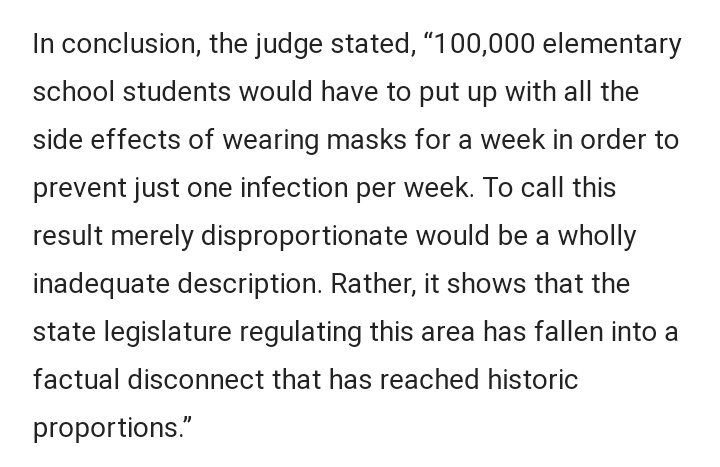
More challenges in the courts – even if unsuccessful – are encouraging
All HART articles also on Substack. Please consider a PAID SUBSCRIPTION so we can continue our work. Comments are open so you can join in the conversation.
It is pleasing to see that, as the fear of the “covid pandemic” recedes, people around the world are starting to look seriously at legal redress for harms caused, and fundamental rights breached, by the myriad evidence-free but catastrophically harmful measures imposed by governments on their citizens.
Here’s a quick summary of some actions that caught our attention. It would be remiss of us, though, to fail to point out that it cannot be assumed that legal cases will receive fair and unbiased treatment by judicial systems, which – to varying degrees – do not seem to be acting as independently from other branches of government as most people would like to imagine.
However, even if that is the case the fact that people ARE mobilising and bringing the fight to the courts must be regarded as an encouraging sign.
In Canada, a number of parties have challenged the Trudeau government’s use of the Emergencies Act in response to the “truckers’ convoy”.
More can be read about the case here.
The judge found that the government’s invocation of the Emergencies Act act was unreasonable and breached Canadians’ fundamental rights as set out in Canada’s Charter. The government has signalled its intention to appeal the decision.
It is worth mentioning that this judgement addresses a rather narrow point of constitutional law, though some would say that any victory is worth having. This writer of this substack article is particularly unimpressed, remarking that the judgement implicitly appears to support the government’s aims, only criticising the choice of machinery used to pursue them.
Regardless, there is (at last) a degree of outraged chatter in evidence in Canada about the entire episode. This article – in the decidedly mainstream Financial Post, raises a number of questions. Many will, we are sure, be astonished to read that two of the protesters were incarcerated for 2 years, including 74 days in solitary confinement.

This quote from Prime Minister Trudeau perhaps illustrates the ideology which so easily led to Canada descending into a Police State.

An Employment Tribunal judge in South Australia found that the Department of Child Protection (DCP) must pay compensation and medical expenses to a youth worker who developed pericarditis after getting a Covid booster under a workplace vaccination directive.
For more on this, see here.
We should probably expect more cases of employees suing their employers (if coerced by them into vaccination) since in most places employers have no explicit legal protection from liability for vaccine harms, and there is strong precedent that they carry liability for harms caused in the course of their employees’ work.
Also in Australia, a court has thrown out a challenge brought by a GP called Julian Fidge. He alleged that Pfizer and Moderna never obtained proper approvals for the mRNA products from the Office of the Gene Technology Regulator (OGTR).
The case was dismissed on the basis that Dr Fidge did not have the necessary “standing”, not being an “aggrieved person” as required by the applicable legislation.
A summary of the issues can be found here. Lodging an appeal is being considered.
Subsequent to that decision, it has emerged that the judge had – as a barrister before becoming a judge – directly and indirectly represented Pfizer in at least 4 separate matters. In most jurisdictions under these circumstances a judge would at least declare such previous connections, and most probably offer to both sides that he should recuse himself or herself from the proceedings on the principle that “as well as actually being done, justice must be seen to be done”.
Germany continues its descent into totalitarianism. Some readers will recall the case of Christian Dettmar, a judge persecuted by the German judicial system for standing against anti-covid measures imposed in schools. In 2021 in one hearing, he declared such measures “contrary to the well-being of children, and for this reason unconstitutional and legally invalid”, stating also:

For that, the police raided his home and seized his phone.
In 2023 he was convicted of judicial impropriety (technically “rechtsbeugung”, a distortion or a bending of the law) and given a two-year suspended prison sentence, as described here. (The prosecutor had sought actual confinement without parole.)
He stated his intention was to appeal (since the criminal record essentially ended his judicial career) but we haven’t heard anything further about this.
An organisation which describes itself as “committed to preserving the constitutional basic order of the Federal Republic of Germany, in particular our democracy, our fundamental rights and the rule of law” has written a number of interesting blog posts on the matter (in German, but machine translation does a pretty good job):
- This post written in April 2023 analyses the indictment
- This, published in August that year commented on the sentence passed
- Finally, this post discusses goes deeper into the constitutional issues involved
In the UK the case in which the state wishes to covid vaccinate “Tom” who has a genetic disorder” over the wishes of his mother rumbles relentlessly on, with apparently a suggestion that his mother should be found in contempt of court.
This is the behaviour of a bureaucracy which is out-of-touch and dangerously out-of-control.
(Click on picture below to go to a tweet with a link to a case summary).
In the USA, the massively important case of Missouri v Biden is about to be heard in the Supreme Court. This might well be the most important legal case ever in the history of the USA, and the fact that hardly anyone knows about it speaks volumes about the direction that our society is heading.
We first wrote about this case here in May last year, with an update published a few months later here.
The Supreme Court will start to hear oral arguments on 18 March. In the USA, third parties can make submissions in support of either parties to a claim by lodging an “amici brief”.
It is instructive to see which organisations are making such submissions, and in favour of which party. An excellent piece has been written about this which can be read here.
Most notably, Stanford University appears keen that the US Government be free to continue to monitor and censor “wrongthink” on social media, something which some might find jars with the core principles to which Universities are signed up.
As the article concludes:
The institutions we once expected to be our allies have revealed themselves to be derelict or submissive. In their place, new groups have emerged to speak truth to power. Now is the time if ever there was one.


